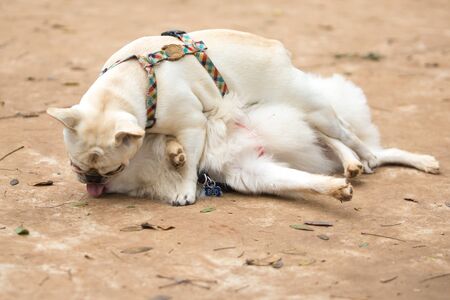1. Introduction: Why Sleep Matters for Dogs
Just like humans, dogs need quality sleep to stay healthy and happy. Sleep plays a crucial role in their overall well-being, affecting everything from their energy levels to their immune system. As a pet owner, understanding your dogs sleep patterns can help you ensure they get the rest they need.
The Importance of Sleep for Dogs
Sleep is essential for dogs as it allows their bodies to recover and recharge. Puppies, adults, and senior dogs all have different sleep requirements based on their age, activity level, and health condition.
How Sleep Affects Canine Health
- Physical Health: Sleep helps muscle recovery, promotes growth (especially in puppies), and supports a strong immune system.
- Mental Well-Being: Dogs process information and reinforce learning during sleep, which is why adequate rest is important for training.
- Behavioral Stability: Lack of sleep can lead to irritability, hyperactivity, or even anxiety in dogs.
Why Understanding Sleep Patterns Is Important
Recognizing your dogs sleep needs helps you provide a comfortable environment that promotes restful sleep. Here’s a general guideline on how much sleep dogs typically need based on their age:
| Dog Age | Average Daily Sleep |
|---|---|
| Puppies | 18–20 hours |
| Adult Dogs | 12–14 hours |
| Seniors | 14–16 hours |
If your dog isn’t getting enough sleep or is sleeping excessively, it might be a sign of an underlying health issue. Paying attention to changes in their sleep habits can help you address potential concerns early on.
2. How Much Sleep Do Dogs Really Need?
Just like humans, dogs need sleep to stay healthy and maintain their energy levels. However, the amount of sleep they require depends on several factors, including their age, breed, and activity level. Understanding these differences can help you ensure your furry friend is getting the rest they need.
Average Sleep Requirements by Age
Puppies, adult dogs, and senior dogs all have different sleep needs. Heres a general breakdown:
| Age Group | Average Sleep Per Day |
|---|---|
| Puppies (0-6 months) | 18-20 hours |
| Adult Dogs (1-7 years) | 12-14 hours |
| Senior Dogs (7+ years) | 14-16 hours |
The Role of Breed in Sleep Patterns
Certain breeds tend to sleep more than others due to their energy levels and natural instincts. For example:
- Larger Breeds: Breeds like Mastiffs, Great Danes, and Saint Bernards are known for sleeping up to 16 hours a day.
- Working Breeds: Dogs like Border Collies and German Shepherds tend to be more active and may only rest around 12 hours per day.
- Toy Breeds: Small breeds such as Chihuahuas and Pomeranians often nap frequently throughout the day but still get around 14-16 hours of sleep.
The Impact of Activity Level
A dogs daily routine also affects how much rest they need. More active dogs may sleep less during the day but require deeper rest at night.
| Activity Level | Total Sleep Needed Per Day |
|---|---|
| Highly Active (e.g., working dogs, agility competitors) | Around 12 hours |
| Moderate Activity (e.g., regular walks, playtime) | Around 14 hours |
| Low Activity (e.g., senior or sedentary dogs) | Around 16+ hours |
Comparing Dog and Human Sleep Patterns
The way dogs sleep is quite different from humans. While people usually have one long sleep cycle at night, dogs take multiple naps throughout the day. They also spend less time in deep REM sleep compared to humans, which is why they need more total sleep time to feel rested.
| Total Sleep Time Per Day | Main Sleep Cycle Type | % of Time in REM Sleep | |
|---|---|---|---|
| Humans | Around 7-9 hours | Mainly at night in one long cycle | Around 25% |
| Dogs | Around 12-16 hours (varies by breed/age) | Naps throughout the day & night sleep | Around 10% |
The Importance of Quality Sleep for Dogs
No matter their breed or age, quality rest is essential for a dogs overall health. If your pup isnt getting enough sleep, they may become irritable or even develop health issues over time. Creating a comfortable sleeping space and maintaining a consistent routine can help them get the rest they need.
If you notice drastic changes in your dog’s sleep patterns or suspect theyre not getting enough rest, it may be worth consulting with a veterinarian to rule out any underlying health concerns.

3. Understanding Canine Sleep Cycles
Just like humans, dogs go through different sleep cycles that play a crucial role in their overall well-being. Understanding these cycles can help you ensure your furry friend is getting the quality rest they need.
The Two Main Stages of Dog Sleep
Dogs experience two primary stages of sleep: Non-REM (non-rapid eye movement) sleep and REM (rapid eye movement) sleep. Each stage serves a unique purpose in their physical and mental health.
Non-REM Sleep
Non-REM sleep is the first stage of a dogs sleep cycle. It is a deep, restful phase where the body repairs tissues, builds muscle, and strengthens the immune system. Puppies and active dogs especially benefit from this stage as it helps with growth and recovery.
REM Sleep
REM sleep is when dogs are most likely to dream. This stage is essential for cognitive functions such as memory consolidation and emotional processing. You may notice your dog twitching, moving their paws, or even making small noises—these are signs they are in REM sleep.
How Long Do Dogs Spend in Each Sleep Stage?
The amount of time a dog spends in each sleep stage varies based on age, breed, and activity level. Here’s a general breakdown:
| Sleep Stage | Description | Approximate Duration |
|---|---|---|
| Non-REM Sleep | Deep sleep where body repair and growth occur | 75-80% of total sleep time |
| REM Sleep | Active dreaming phase important for brain function | 20-25% of total sleep time |
Why Understanding Sleep Cycles Matters
A balanced sleep cycle ensures that your dog stays healthy, both physically and mentally. Disruptions to their sleep patterns—such as frequent waking or insufficient REM sleep—can lead to stress, irritability, or even health problems over time.
Signs Your Dog Is Getting Quality Sleep:
- They wake up alert and refreshed.
- You notice steady breathing during deep sleep.
- Their movements during REM sleep are mild and occasional.
If you suspect your dog isnt getting enough quality rest, consider evaluating their sleeping environment and daily routine to promote healthier sleep habits.
4. Factors That Influence a Dog’s Sleep
Just like humans, dogs have unique sleep needs influenced by various factors. Understanding what affects your dogs sleep can help ensure they get the rest they need to stay healthy and happy. Here are some key factors that impact a dog’s sleep patterns:
Age
A dogs age plays a significant role in how much sleep they require. Puppies and senior dogs tend to sleep more than healthy adult dogs.
| Age Group | Average Sleep Duration |
|---|---|
| Puppies (0-6 months) | 18-20 hours per day |
| Adult Dogs (1-7 years) | 12-14 hours per day |
| Seniors (7+ years) | 14-18 hours per day |
Breed
The breed of your dog also affects their sleep needs. Larger breeds, such as Mastiffs or Saint Bernards, tend to sleep more than smaller breeds. Working breeds like Border Collies and Australian Shepherds are naturally more active and may require less sleep.
Environment
A dogs sleeping environment can significantly impact their rest. A quiet, comfortable space with minimal disturbances helps ensure quality sleep. Factors such as temperature, noise levels, and bedding all contribute to their overall comfort.
How Environment Affects Sleep Quality:
- Noisy Household: May lead to interrupted sleep cycles.
- Uncomfortable Bedding: Can cause restlessness or joint discomfort.
- Lack of a Routine: Inconsistent schedules can disrupt natural sleep patterns.
Health Conditions
Certain medical conditions can impact a dogs ability to get restful sleep. Issues such as arthritis, anxiety, or respiratory problems may cause frequent waking or discomfort during sleep.
Common Health Issues That Affect Sleep:
- Arthritis: Pain can make it difficult for older dogs to find a comfortable position.
- Anxiety: Stress or separation anxiety can lead to restless nights.
- Brachycephalic Syndrome: Short-nosed breeds like Bulldogs may struggle with breathing issues that affect their sleep.
Daily Routine
A consistent daily routine helps regulate a dogs internal clock. Feeding times, exercise schedules, and bedtime routines all play a role in ensuring they get enough restful sleep.
Tips for Establishing a Healthy Routine:
- Create a Consistent Schedule: Try to feed, walk, and put your dog to bed at the same time each day.
- Adequate Exercise: Regular physical activity helps burn excess energy and promotes better sleep.
- Mental Stimulation: Engaging toys and activities can prevent boredom-related restlessness.
If you notice changes in your dogs sleeping habits or suspect an underlying health issue, consulting your veterinarian is always a good idea. Understanding these factors allows you to create an optimal environment for your furry friend’s rest and overall well-being.
5. Signs of Sleep Problems in Dogs
Just like humans, dogs can experience sleep disturbances that affect their overall health and well-being. While some variations in sleep patterns are normal, persistent issues may indicate an underlying problem. Here are some common sleep disturbances in dogs and when you should consider seeking veterinary advice.
Common Sleep Issues in Dogs
| Sleep Issue | Description | Potential Causes |
|---|---|---|
| Insomnia | Your dog has difficulty falling or staying asleep. | Anxiety, pain, aging, or environmental changes. |
| Excessive Sleeping | Your dog sleeps more than usual and seems lethargic when awake. | Illness, depression, poor diet, or lack of exercise. |
| Restless Behavior | Your dog frequently wakes up, moves around, or changes sleeping spots. | Pain, discomfort, stress, or neurological issues. |
| Loud Snoring or Labored Breathing | Your dog snores loudly or struggles to breathe while sleeping. | Brachycephalic (short-nosed) breeds, obesity, or respiratory problems. |
| Narcolepsy or Sudden Collapse | Your dog suddenly falls asleep during activities. | A rare genetic condition affecting sleep regulation. |
When to Seek Veterinary Advice
If your dogs sleep problems persist for more than a few days or are accompanied by other concerning symptoms such as appetite loss, behavioral changes, or difficulty breathing, its best to consult a veterinarian. Early intervention can help address potential medical conditions before they worsen.
Tips for Improving Your Dogs Sleep
- Create a comfortable sleeping area: Ensure your dog has a quiet and cozy spot to rest without disturbances.
- Maintain a consistent routine: Regular feeding times and exercise schedules can help regulate sleep patterns.
- Avoid late-night stimulation: Reduce noise and activity levels before bedtime to promote relaxation.
- Monitor diet and hydration: A well-balanced diet and proper hydration contribute to overall health and better sleep.
- Treat underlying health issues: If pain or anxiety is affecting sleep, work with your vet to find appropriate treatments.
If youre ever unsure whether your dogs sleep habits are normal, keeping a sleep diary and noting any unusual behaviors can be helpful when discussing concerns with your vet.
6. How to Improve Your Dogs Sleep Quality
Ensuring your dog gets quality sleep is essential for their overall health and well-being. Just like humans, dogs need a comfortable environment and a consistent routine to rest properly. Here are some practical tips to help your furry friend get the best sleep possible.
Creating a Comfortable Sleeping Environment
Your dogs sleeping space plays a significant role in their sleep quality. A cozy and quiet area can make a big difference in helping them feel secure and relaxed.
Key Elements of a Good Sleeping Environment
| Factor | Tips |
|---|---|
| Comfortable Bed | Choose a soft, supportive bed that suits your dogs size and sleeping style. |
| Temperature Control | Ensure the room is not too hot or too cold. Use blankets or cooling mats as needed. |
| Noise Level | Place their bed in a quiet area away from loud noises and household traffic. |
| Lighting | Avoid bright lights; dim lighting can help signal bedtime. |
| Scent & Familiarity | Add an item with your scent, like an old t-shirt, to provide comfort. |
Establishing a Consistent Sleep Routine
Dogs thrive on routine, and having a consistent schedule can improve their sleep quality. Try to set regular wake-up and bedtime hours to help regulate their internal clock.
Tips for a Healthy Sleep Routine
- Set Regular Sleep Times: Try to have your dog go to bed and wake up at the same time each day.
- Create a Wind-Down Period: Engage in calm activities before bedtime, such as gentle petting or quiet time.
- Avoid Late-Night Feeding: Feeding too close to bedtime can lead to discomfort and disrupt sleep.
- Add Evening Bathroom Breaks: Let your dog relieve themselves before bed to avoid nighttime awakenings.
- Avoid Excessive Stimulation: Reduce playtime and excitement before bedtime to promote relaxation.
Mental & Physical Stimulation for Better Sleep
A well-exercised dog sleeps better. Both physical activity and mental stimulation contribute to a restful night’s sleep.
The Right Balance of Activity
| Type of Activity | Description |
|---|---|
| Daily Walks | Adequate exercise helps burn energy and promotes relaxation at night. |
| Puzzle Toys | Mental challenges tire out your dogs brain, making them ready for sleep. |
| Mild Evening Playtime | A short play session before bedtime can help them wind down without overstimulating them. |
| Scent Work Games | Nose work activities provide both mental engagement and relaxation benefits. |
| Treat-Dispensing Toys | A slow-feeder or treat puzzle can calm your dog before bedtime. |
The Role of Diet in Sleep Quality
Your dogs diet also plays a key role in their ability to rest well. Avoid feeding them heavy meals right before bed, but ensure they have proper nutrition throughout the day.
Nutritional Tips for Better Sleep
- Avoid Late-Night Snacks: Heavy meals before bed may cause digestive discomfort.
- Select High-Quality Food: Nutritious meals support overall health, including better sleep patterns.
- Add Calming Supplements: Natural supplements like chamomile or melatonin (with vet approval) may help anxious sleepers.
- Keeps Hydration Balanced: Ensure they drink enough water during the day but limit excessive drinking at night to avoid frequent bathroom trips.
If your dog still struggles with sleep despite these adjustments, consider consulting a veterinarian to rule out any underlying health issues affecting their rest. By providing a comfortable sleeping space, maintaining a routine, and ensuring they get enough exercise, you can significantly improve your pup’s sleep quality for a happier and healthier life!


